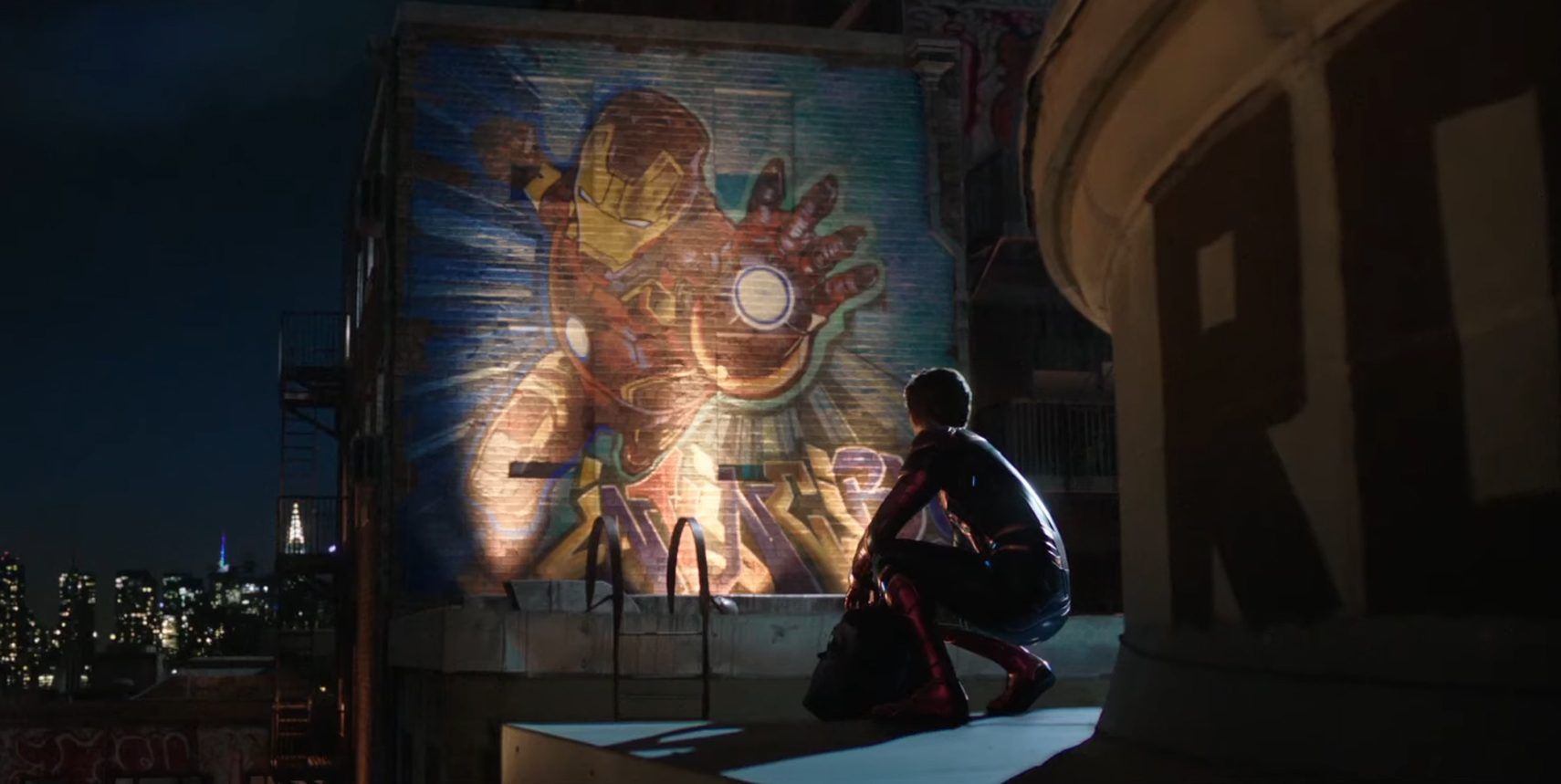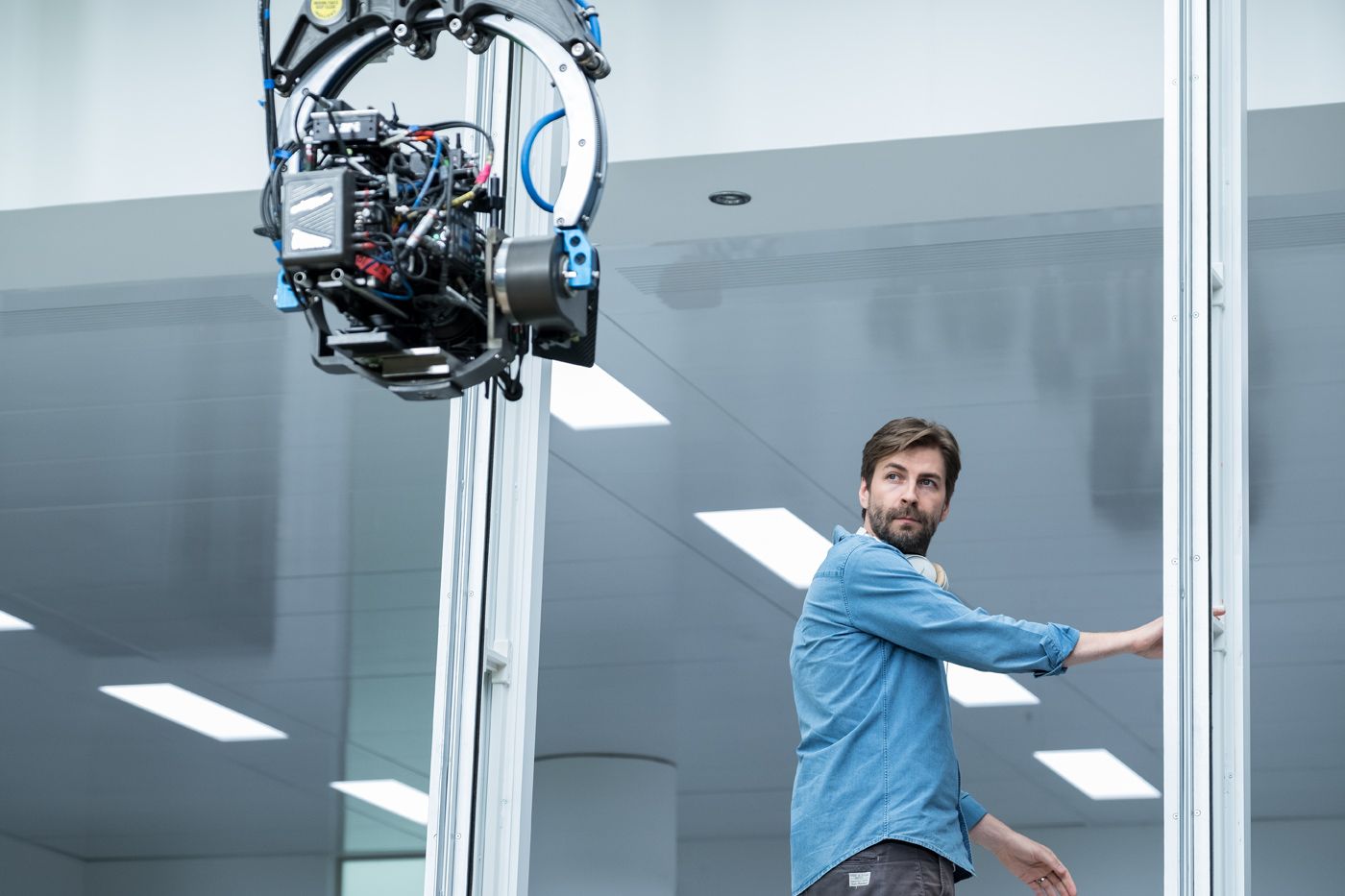Spider-Man: Far From Home is the official end of the Infinity Saga, but it's also the beginning of something new for the Marvel Cinematic Universe. As such, director Jon Watts had a lot to deal with — from intense secrecy on set to addressing lingering questions from Avengers: Endgame.
It seems, however, that Watts took on all of the pressure in good spirits. While speaking with CBR, the filmmaker shared how he laughed while reading an Endgame interview, his purpose in including all of those references to Tony Stark, and his own personal endgame for Far From Home.
CBR: Tony Stark was a huge presence in this film. Can you talk about your thought process in choosing those specific murals of him we see in the different locations?
Jon Watts: I was one of the lucky few people who knew the events of Infinity War and Endgame a long time ago, so we developed the movie in tandem. I always knew that Tony’s presence was going to loom large over this film. And that was one of the earliest visual ideas was to see Spider-Man dwarfed by these giant murals of Tony. But of course, when we're shooting, we couldn't actually paint these murals because Endgame hadn't come out, and we couldn’t reveal what had happened to Tony. So all of that stuff had to be added later. We would paint a giant mural and then photograph it and composite it onto the various walls and billboards throughout the movie.
Who are the artists involved with the murals?
All the murals were painted by Ryan Meinerding [Marvel Studios' head of Visual Development].
Obviously, there was a huge jump in secrecy from Homecoming to Far From Home, especially with its placement post-Endgame. Could you go a little more into the experience and potential struggle with that, especially with the different locations you were shooting in?
I remember reading this interview with Joe [Russo] saying how Endgame was the first movie where they didn't have to worry about the future of the MCU, and I laughed when I read it, because I do. There's so many unanswered questions at the end of Endgame that I had to deal with. They provided a really great jumping-off point for the story, but, you know, it also made it very tricky for everyone working on the film and acting in the film, because we had these scripts that were just completely redacted anytime there was anything about Tony, or the Snap, or the Blip, or any of that. It was all blacked out. So everyone was operating on this crazy need-to-know basis, where if you didn't need to know, you were kind of in the dark. So it was a really sort of strange environment. But it all worked out in the end.
With the audience probably still so emotionally invested, and emotionally scarred, by what happened in Avengers: Endgame, I was wondering what your personal endgame was with this film. How did you want the audience to feel and react after Far From Home?
In the way that Homecoming was about this kid who really wanted to step up and wanted to be treated like an adult and show the world what he could be, I wanted to do the opposite in this film. Where now that Tony is gone, and Peter’s still hurting from that, and suddenly, now the world is looking towards him to step up and take his place on the world stage. And for the first time, he feels like, “Oh, maybe I'm not good enough, maybe I'm not ready.”
And that to me was the main storyline that I wanted to explore in this: Peter’s sort of tortured relationship between power and responsibility, and really trying to figure out who he is. If he’s not going to be the next Iron Man, he’s going to be the first Spider-Man, and what is that going to look like?
If there were a Spider-Man 3, where would you hope to pick up with Peter’s journey?
I don't know. I like to try to think about these movies one at a time, but once it’s in the theater, we got to start thinking about what might happen next. But I definitely painted myself into a corner with this one, so that’s the fun challenge to try and find your way out of it.
There seems to be more of everything in this movie: there are more things to fight, there are more relationships, there are more locations. So how do you make sure that even when you're widening the scope of this franchise that it still remains centered?
For me, Spider-Man is always the center. And if you just try to think about all these crazy things that are happening, you try and think about them through the eyes of a 16-year-old kid, to me that always grounds it so no matter how big the things surrounding him get, he’s always grounded. And he’s always the lens through which we experience this crazy Marvel Universe.
Directed by Jon Watts, Spider-Man: Far From Home stars Tom Holland, Samuel L. Jackson, Zendaya, Cobie Smulders, Jon Favreau, JB Smoove, Jacob Batalon and Martin Starr, with Marisa Tomei and Jake Gyllenhaal. The film is in theaters now.


